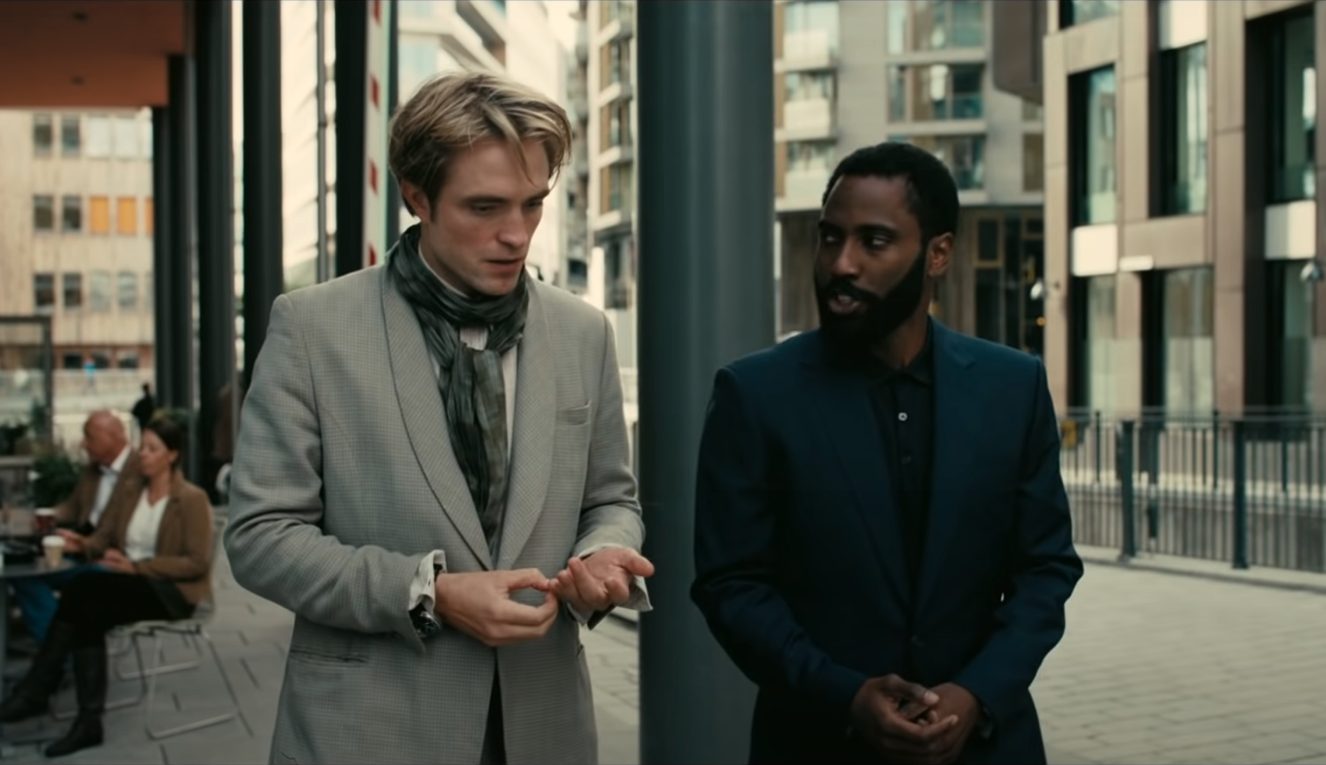Before embarking on a Christopher Nolan film, it’s often important to remember that as an artist, Nolan is far more concerned with the big picture than the small. This manifests partly in his obsession with his films being complex interlocking experimental puzzles of time, narrative and action. In part it also echoes in his sentiments about preferring viewers to experience his works on the cinema screen. He’s also a meticulous filmmaker, one who obsesses over structure, concept, big ideas, and frankly stunning imagery. But Tenet is the film which shows that his greatest strengths can also be his greatest weaknesses.
Tenet tells the story of unnamed CIA asset, John David Washington, who, after a failed mission, is flung into a mysterious world-spanning, reality-altering conflict. The only clues he has are the password “Tenet” and a secret hand signal. Backed up by cheerful new ally Neil (Robert Pattison), he becomes the protagonist in his own mission, exploring the mystery of Tenet, and how it connects to the Russian arms dealer Sator (Kenneth Branagh) and his long-suffering wife, Kat (Elizabeth Debicki).
To say that Tenet is an ambitious film would be an understatement. The film is, in one sense, an honest blockbuster, featuring a Bond-like globetrotting story, grand heists, romance, spy-work, and a colossal finale filled with soldiers and gunplay. But at the same time, Tenet is an experimental sci-fi story, tying in a “quantum cold war”, theoretical physics, as well as multiple 180-degree spins of Time’s Arrow. It’s a complicated ask for an audience to take it all in, especially the first time round. This is compounded by baffling choices, such as a sound mix that repeatedly drowns out important exposition with blaring music. The film also tries to double down on making itself inscrutable, by obfuscating plot elements early on, or simply not explaining many aspects for the first half of the film.
None of which is to say it’s a bad film. Washington is a likeable (if slightly bland) protagonist and he’s certainly got the chops for a role like this. Debecki is a powerhouse of subtle expression and never less than believable, when she isn’t being given the worst lines to deliver. Branagh is ever-reliable, even if his Russian mobster schtick does feel entirely recycled from his villainous turn in Jack Ryan: Shadow Recruit. But the film’s MVP turns out to be Robert Pattison, who eats up the scenery like no-one’s business, proving himself the high-point of the movie, and cementing his place as one of the great rising actors of his generation.
But the let-down comes from Nolan himself. Much like with Inception and Dunkirk, his experimental tinkering with time and form comes at the expense of a clear narrative. But where those films felt honestly clever in their assembly, Tenet is needlessly unclear. Whether that’s in order to try and make the story feel more complicated than it really is, or to facilitate the various action scenes in the right places, is a larger question. The result is a film that feels both overlong and too short, overcomplicated and somehow also strangely facile. What’s more, once the audience gets to grips with the film’s central gimmick, the film fails to utilise it in ways that an audience would appreciate – something that a less meticulous and “arthouse” director probably would have mined the depths of for every cool and fun idea possible. As a result, it’s a let down, and a film that would likely have been seen, enjoyed and forgotten were it not for the unique global cinema situation for which it became the bizarre poster child.
Showing at cinemas now
